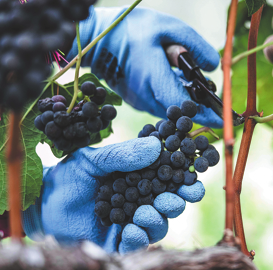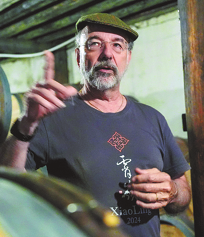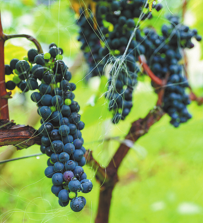

Two years later, at the age of 30, he founded Zaxee Walnut Tree Winery — a name rich with meaning. Zaxee (similar to the Tibetan word tashi) was the first Tibetan word he learned after arriving: zaxee delek — a greeting filled with warmth and goodwill. "When you walk into a Tibetan home, elders greet you with tashi delek. When sharing a meal or pouring wine, people say tashi delek. When you leave, they wave and say tashi delek. Each time I heard it, I felt at home," Quan says.
In Tibetan, zaxee means good fortune and auspiciousness. The walnut tree in the winery's name comes from a 500-year-old tree standing proudly at its entrance. "I hope our wines can convey the same pure blessings of the Tibetan plateau," Quan says. "And that our winery, like the walnut tree, will take root here and grow for generations."

To Quan, winemaking is a form of translation — an act of giving voice to the land. "If wine is expressed correctly, if it's translated truthfully, consumers will understand the region behind it," he explains. "In the past, people would say a wine has a Bordeaux style or a Burgundy style. But here in China, in the highlands, we are developing a style of our own."
Liu agrees. "Zaxee Walnut Tree represents the rise of a new generation of Chinese winemakers," she says. "They don't rely on foreign expertise. Instead, with scientific rigor and local wisdom, they're crafting wines that are authentically Chinese."

Together, the stories of Songtsam and Zaxee reflect the quiet confidence of a region coming into its own. In the high valleys of Shangri-La, winemaking is no longer just an imported craft — it is becoming an expression of place, people and pride. Here, amid snow peaks and vineyards, China's new frontier of wine is taking root — one that speaks with a voice unmistakably its own.